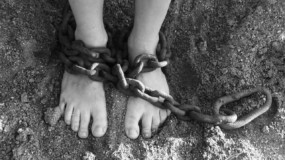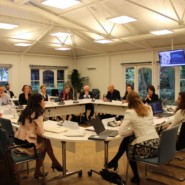Posted on 16 Jul 2016
Every year the US State Department releases the Trafficking in Persons Report ranking 190 nations by their efforts to tackle human trafficking on a scale from the worst on Tier 3 to best on Tier 1. The Tier specifications are:
- Tier 1: Governments fully comply with the Trafficking Victims Protection Act’s (TVPA) minimum standards.
- Tier 2: Governments do not fully comply, but are making significant efforts to bring themselves into compliance.
- Tier 2 Watch List: Governments do not fully comply, but are making significant efforts to bring themselves into compliance, as well as other negative indicators.
- Tier 3: Governments do not fully comply and are not making significant efforts to do so.
Under US law, countries on Tier 3 may face non-trade related sanctions, leading to restrictions on US foreign assistance. Tier 3 countries may not receive funding from global financial institutions such as the International Monetary Fund and the World Bank.
According to the newly released 2016 report, Myanmar, Sudan and Haiti are currently among the worst offenders for human trafficking – the three countries are among 27 to be downgraded in this year’s report. Four countries that had been on Tier 2 Watch list for four years, were now downgraded to Tier 3 and seven countries dropped down to Tier 2 Watch list.
Image source: CNN
Countries that made efforts to improve their fight against human trafficking, were upgraded in the current report: for example, the Philippines moved up to Tier 1 this year due to its law enforcement efforts, after being on Tier 2 for many years, although sex trafficking is still considered a ‘significant problem’. Approximately 10 million Filipinos work abroad, and many of them are vulnerable to human trafficking and labour exploitation. As a response, the government has increased funding to mitigate the risk of migrant worker trafficking, and increased convictions in the areas of child online sex trafficking and forced labour.
Thailand, after two years, was upgraded to Tier 2 due to ‘significant efforts’, such as the revision of the fisheries act and the anti-trafficking law. Others claims that the upgrading move could help smooth relations with Bangkok’s military-run government. Nevertheless, the significant and continued trafficking evidence occurs in several industries, such as fishing, sex and agriculture industries. The Thai government has openly been accused to be complicit in human trafficking in the fishing industry and in trafficking crimes impeding efforts to eradicate human trafficking and exploitation.
As a response, the Thai government established the Command Center for Combating Illegal Fishing (CCCIF) to combat illegal, unreported and unregulated (IUU) to perform inspections at port, at sea, and on land to ensure that fishing vessels are operating legally and workers have contracts, work permits, and identity documents.
Cambodia was also upgraded from Tier 3 to Tier 2 due to its efforts against the sex trade and child sex tourism.
Image source: CNN
The US TIP report, now being published since 2001, is the only ranking tool developed by a single government, in addition to the UNODC Global Report on Trafficking in Persons.
In 2015, a Reuters investigation revealed that senior US diplomats inflated the grades of 14 strategically important countries and also, civil society representatives underline, that ‘the TIP report can be a great diplomatic tool to fight modern slavery, but only if the State Department is going to rank countries honestly according to what’s happening on the ground’ (Kristen Abrams, director of the Alliance to End Slavery and Trafficking) and ‘too often the TIP report pays too much attention to US strategic interests rather than the evidence available. As a result, it undermines both its purpose and its cause’ (Aidan McQuade, director of Anti-Slavery International).
In light of governmental efforts to fight human trafficking and protect vulnerable communities of falling victims to any kind of exploitation, it is important to emphasize a multi-stakeholder response. The private sector has increasingly been involved in tackling human trafficking and mitigating the risk of goods being produced under circumstances of labour trafficking and exploitation in global supply chains.
The Global Initiative has partnered with Babson College’s Initiative on Human Trafficking and Modern Slavery to establish RESPECT: the Responsible and Ethical Private Sector Coalition against Trafficking to develop a platform to bring together thought leaders, practitioners and policy makers who have a clear understanding of what issues lie ahead and consider possible solutions to public and private sector challenges surrounding human trafficking. Respect does not only mobilize the business community as a strategic partner to put this illicit trade out of business, but also will provide a comprehensive Resource Centre to support the business community with diverse material; identifying best practices and positive experiences; and carve out a set of challenges to pursue with various collaborators.





